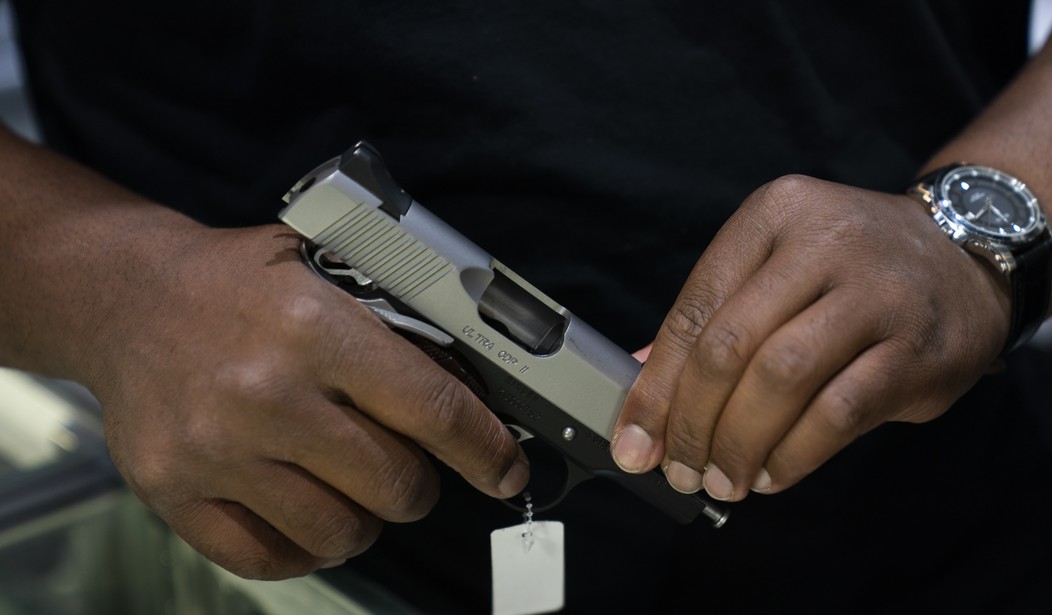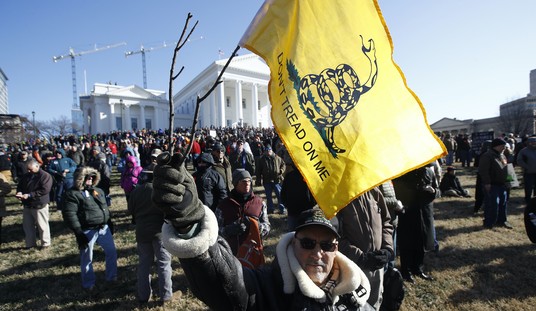I'm a little salty about gun-related research lately. On Saturday, I showed part of why I'm salty about it. There are a lot of stupid studies out there, and while there always will be, a lot of them aren't just the result of someone asking a stupid question and looking for the answer--I'm willing to actually admire that kind of thing, if I'm being honest about it--but that they're trying to advance an anti-gun agenda.
So when I saw a report of a different study, this one claiming that accidental gun deaths were higher in certain pro-gun states, I was ready to be infuriated.
And let's be real, the start of the story about it wasn't exactly designed to help me maintain my sense of calm.
Americans' risk of dying in a firearm accident depends in large part on where they live in the United States, a new study finds.
People in Southeastern states like Mississippi, Louisiana and Alabama run the greatest risk of a gunshot accidentally killing them, researchers said.
Meanwhile, the risk of accidental gun death is much lower in Northeastern states like Massachusetts, New York, Maryland and Connecticut, results show.
“Crude rates in the states with the highest rates, clustered mostly in the Southeast, were about 10 times the rates in the states with the lowest rates, located mostly in the Northeast,” concluded researcher David Schwebel, a professor of psychology with the University of Alabama at Birmingham.
Nationwide, more than 12,300 people died in gun accidents between 2001 and 2021, Schwebel found in his analysis of firearms deaths data maintained by the U.S. Centers for Disease Control and Prevention.
Over 20 years, we had an average of 615 people die by accidental gunfire in a nation of around 330 million people?
Sounds like it's not much of an issue.
But the researcher did figure that when you've got more gun owners, you're more likely to have someone eventually mishandle a firearm. The more times that happen, the more likely someone will die as a result.
It's not rocket science, and it's not necessarily reflective of anything other than the laws of probability. Yet singling out those pro-gun states as where your supposed risk is high and anti-gun states as where the risk is low is an issue. Why? Because it suggests that there's some inherent danger of living in pro-gun states.
Only, I think that was the result of the writer, not the researchers.
Oh, don't get me wrong, I'm very much down on the social sciences lately, as one might have gathered looking at some of my other work this week, but in this case, I'm actually of the belief that the researchers in this case weren't trying to advance an anti-gun agenda. Why? Because they actually suggest it might be a terrible idea.
“Attempts to alleviate the complex nature of poverty in America are challenging, complex and unlikely to happen quickly,” Schwebel in a journal news release. “Attempts to reduce firearms ownership are equally unlikely, and arguably inappropriate as firearms represent an integral part of culture and life for many Americans, including especially Americans living in rural areas.”
Now, they do seem to want policy efforts that would "promote" safer handling of guns and safety devices, but that could be as simple as tax credits for gun safes, which many on the pro-gun side of things favor, myself included.
Because they don't seem to advocate for gun control laws, instead arguing that it's not going to happen and it might not be appropriate in the first place, I'm willing to extend a bit of grace and figure this was someone actually curious and seeking answers for their own questions.
Maybe they're really anti-gun, but if so, they have enough good sense to keep it under wraps, unlike some so-called researchers.







Join the conversation as a VIP Member